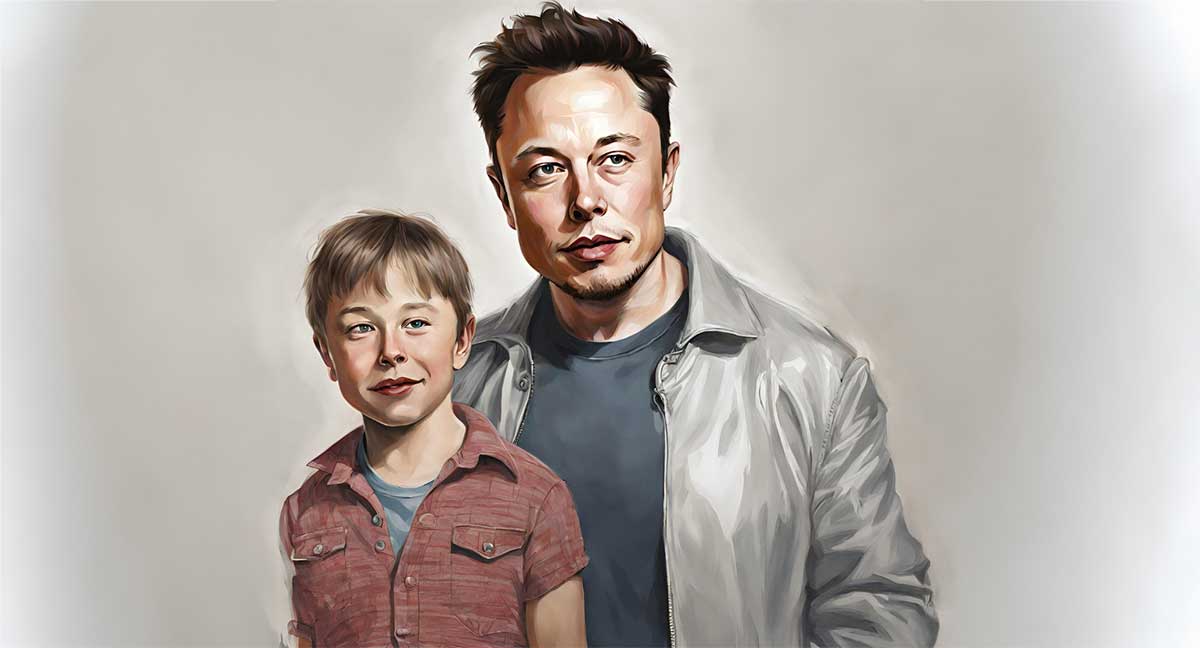Elon Musk, controversial CEO and entrepreneur, is once again making headlines, this time for his candid interview with Andrew Ross Sorkin at the New York Times DealBook Summit on November 29, 2023. The conversation has since ignited discussions across the internet, shedding light on Musk’s leadership style and prompting a closer examination of how his upbringing has shaped his approach to leading others and leveraging his power. Delving into the low-conscious characteristics displayed during Elon Musk’s interview, this piece explores the link between the trauma he experienced in childhood and his leadership style.
A Glimpse into Low-Conscious Leadership
Big-name brands paused advertising on X (formerly known as Twitter) following his statement of an antisemitic conspiracy theory favored by white supremacists. And while he did apologize for the antisemitic posts, the interview was largely a disjointed discussion about childhood, aliens and galaxies, computer-laden minds, and more bizarre sound bytes than could be counted—resulting in a portion of attendees exiting early, through no fault of Sorkin’s.
Now available at CNN and nearly every news outlet, the conversation captures Musk’s interaction with Sorkin, revealing aspects of his style that could be categorized as low-conscious leadership. Musk’s statement that “being trusted as a leader is unimportant” speaks volumes. His inability to look directly at the audience for the entirety of the 90-minute interview could also be an indicator of his discomfort with connection.
Musk thumbed his nose at advertisers with plenty of profanity, stating that he didn’t want advertisers to weaponize their dollars to blackmail him. At one point during the interview, he called out by name the current CEO of Disney, Bob Iger, who was in the audience. Musk’s tendency to control and dictate, rather than empower and collaborate, raises questions about the roots of such behavior. A leader’s approach can often be traced back to their formative years, and Musk’s case is no exception.
The Influence of Musk’s Upbringing
To understand Musk’s leadership style, it’s essential to explore the influence of his childhood. He has spoken publicly about the relentless bullying he endured as a child. He had a strained relationship with his father, describing him as “emotionally abusive.”
Growing up as a voracious reader—self-described as “bookish”—Musk also found himself frequently targeted by his peers. Between school and home life, he was incredibly intelligent and equally powerless. The relentless bullying has likely stifled his level of self-awareness, inflated his ego as a survival mechanism, impacted his ability to collaborate easily, and ultimately made it difficult for him to engage in conscious communication. His desire to prove himself, no matter the cost, seems to be an unconscious, unmet need to feel valued simply for who he is. Though, he disagreed with this notion on-stage and instead said his drive was due to his “curious mind.”
Experiencing continuous trauma during childhood can lead to a shutdown of the genetic capacity to produce the hormones required for empathy, compassion, relationships, connection, and belonging, according to Dr. Paul Brown and Sol Davidson. If that leaves the genetic structure to produce only adrenaline and cortisol, the implication is that some leaders could be locked into operating unconsciously from a place of threat perception. The consequences are startling when these leaders are charged with the impact of organizations and platforms that have become part of our societal tapestry, including the cars we drive, implications of artificial intelligence, and the planets we inhabit as humans, to name a few.
The hardships from Musk’s upbringing—a traumatizing relationship with his father and persistent bullying—have undoubtedly left their indelible marks. Psychologists assert that early experiences can leave lasting imprints on an individual’s psyche, shaping their behavior and decision-making as adults. Musk’s need for control and authority may be rooted in his efforts to navigate a tumultuous childhood, using control as a survival strategy. It certainly doesn’t make for a peaceful mind. To Sorkin’s question about whether the wild storm of Musk’s mind is a happy one, Musk replied, “No.”
Trauma and People-Controlling Leaders
Musk can be categorized as a “people-controller,” a term associated with leaders who prioritize control over collaboration and aggression over compassion. While Musk himself may call his mindset and approach innovative—and see likability as a weakness—this leadership style actually hinders innovation in the long-term, stifles creativity, and creates a culture of fear within any type of organization. The difference between others and Musk is that he has the unending means to replace employees who disagree with him or keep companies afloat even if revenue streams disappear. By exploring Musk’s behavior through a trauma-informed lens, we gain insight into the potential consequences of leaders who do not take responsibility for integrating their own psychological wounds.
Leadership experts and psychologists alike emphasize the importance of self-awareness and inner healing for effective leadership. Musk’s interview provides a case study on how unresolved childhood trauma can manifest in business, impacting organizational dynamics, employee well-being, and stakeholders across the board—customers, advertisers, political leaders, members of the media, and “Earth.” This interview serves as a reminder that leaders who fail to acknowledge and address their own emotional history may unintentionally perpetuate negative patterns internally, among their teams, and in this case, among society at large.
Connecting Musk’s Behavior to a Broader Conversation
As we navigate the landscape of leadership, it’s crucial to learn from examples like these and strive for a more integrated, vulnerable, compassionate and conscious approach to leading ourselves, others, and organizations of all sizes.
True leadership transcends the confines of financial success; it is not measured in dollars amassed but in the profound impact a leader has on inspiring others. The essence of leadership lies in the ability to ignite passion, foster growth, and elevate the collective spirit. It is found in the genuine connections forged, the empowerment of individuals, and the cultivation of a shared vision that extends far beyond monetary metrics. In the realm of impactful leadership, the true measure of success is the lasting inspiration that fuels positive change and motivates others to reach their full potential.
For leaders looking to explore the impact of childhood trauma on their leadership style and cultivate a more conscious approach, a valuable resource awaits. The anticipated book on the subject, HEAL to LEAD: Revolutionizing Leadership through Trauma Healing provides insights, tools, and the four fundamentals of high-conscious leadership—for those willing to take radical responsibility for their personal growth and professional impact.



0 Comments